Beyond My Lens: Photographer Katie Levine’s Storytelling Podcast, Supported by Narrative
Blog
By Kyle Wilson
With a philosophy that ‘wedding photography should be a rad time not a bad time,’ Jonathan Suckling uses his infectious energy and humor to make every wedding an unforgettable experience. With banter, dive-rolling antics, and epic dance moves, Jonathan captures genuine, candid moments in his own unique way - and accidentally became Tik-Tok famous for it. He joins us from Auckland, NZ to chat about adulting, his viral video success, and passion for human connections and comedy.
KW: You're just heading into wedding season. How many do you have?
JS: I've got 35 from September to April. Last year, I shot 45, so this is a much nicer fit for me.
KW: Did you have anything you were working on over the off-season?
JS: We ended up taking a six-week trip to Australia. We had a break where we didn't do any work, and it was glorious. It set us up for a good year. My partner, Bailey, has gone full-time with her video work, so it was fun getting the office set up and learning to navigate working together and being together 24/7. I'm trying to be really disciplined this year. We want to enjoy any time off that we have now.
KW: You're both working in the creative field. Do you find that you can say, I really want to hang out with each other at five o'clock, so let's get everything done?
JS: The biggest thing for me was weekends. I was always trying to do some extra work over the weekends. And now she's like, no if I'm going to be full-time self-employed, I'm going to enjoy some time off. We've been having awesome weekends and time with friends and dinners, going out, and stuff like that. I've been getting up earlier than I used to and doing a bit of exercise first thing in the morning. I've started running. You can see I'm an adult.
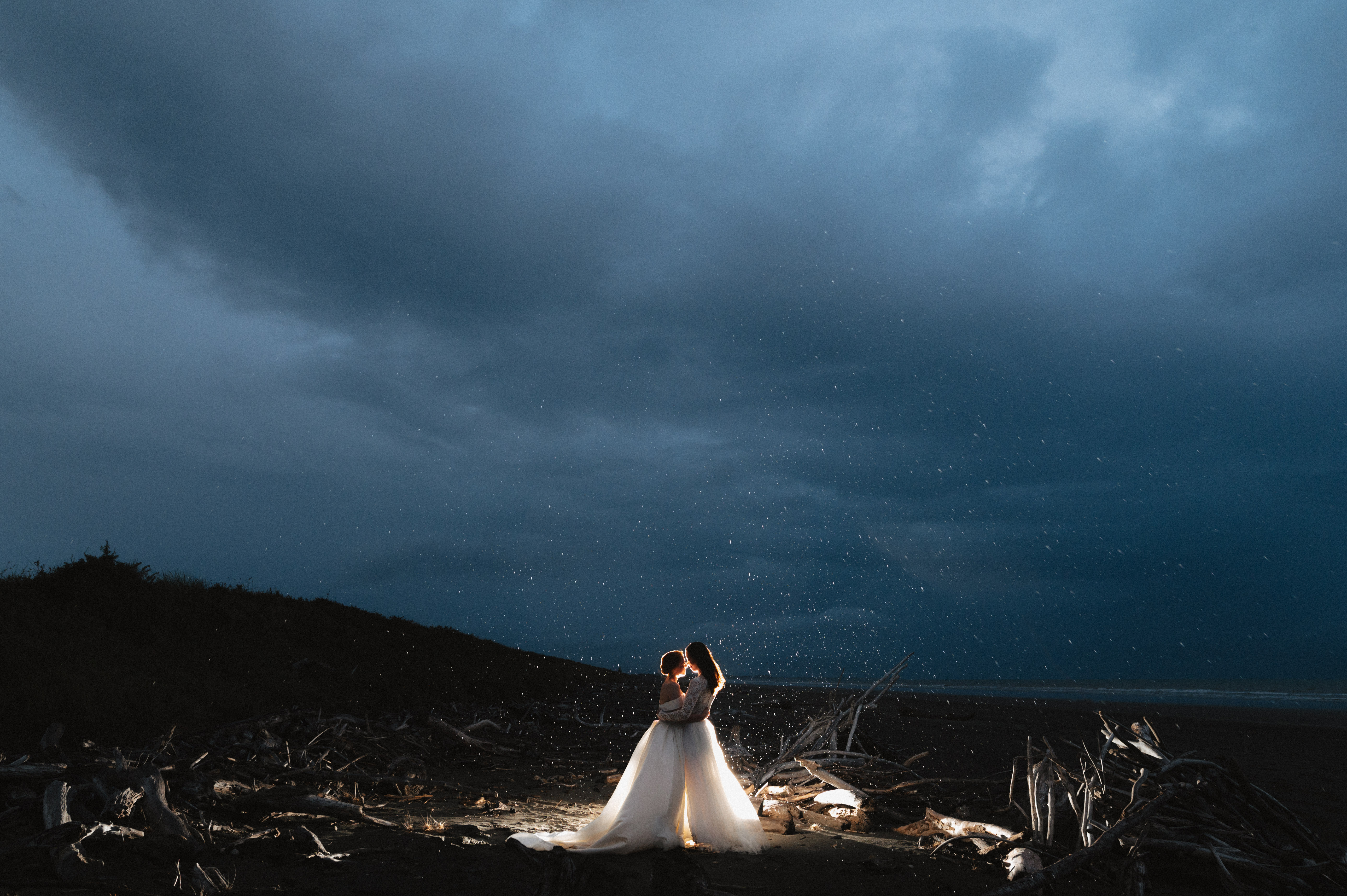
KW: Look at you go. There was an explosion of growth when you had a couple of videos go viral, and your wedding business grew. What's been your proudest moment of work?
JS: Buying our house was a moment where I've been able to turn this art and this passion into something tangible that we can live in, and I'm really adulting now. It's not just a fun thing that I've done. I've actually turned it into something real.
KW: Does that crank the pressure up for you to make this much money, or do you feel secure?
JS: Before you get that loan from the bank, they're breathing down your neck. They're checking all your accounts, and as someone who is self-employed, they view your income with a lot more scrutiny. It was also happening during COVID which was an uncertain time, and that was stressful. I realized I needed to know my numbers in terms of my business because I was constantly sending profit-loss reports and income summaries to the bank.
In the past, that was in the too-hard basket. It turned me into a real detailed analytical numbers guy and made me aware of my finances. My earnings are more than double what I was earning before buying the house. Part of that is the confidence now that I know that I'm secure in that, and it also gives you something to work towards. In the past, I've been like, Oh, I stayed for another hour, don't stress about that, that's no problem. And now I'm an adult who has to pay for a mortgage. I deserve to be paid for my time, so rather than being charitable with essentially what's taking away from my ability to live a good life, if you'd like an extra hour of my time, I'm happy to invoice you for it. It made me feel way more confident to value myself.
KW: Did having to understand your business finances also turn into a personal finance budget?
JS: I became obsessed with understanding mortgage structures and rates and how this whole economy works. My simple philosophy is to focus on bringing as much money in as possible and spending as little money as possible. The biggest thing for us is to increase how much cash we have in our bank accounts because that offsets mortgage interest payments. Traditional investing in stocks and stuff can't outcompete the interest savings compared to what we pay on a house because interest rates are quite high in New Zealand. So that's the focus for now. Once we feel like we're further along those goals, then I'm keen to follow The Barefoot Investor; he's an Australian finance guy who's put together a really simple structure in terms of how to put your income aside for things like emergency funds.
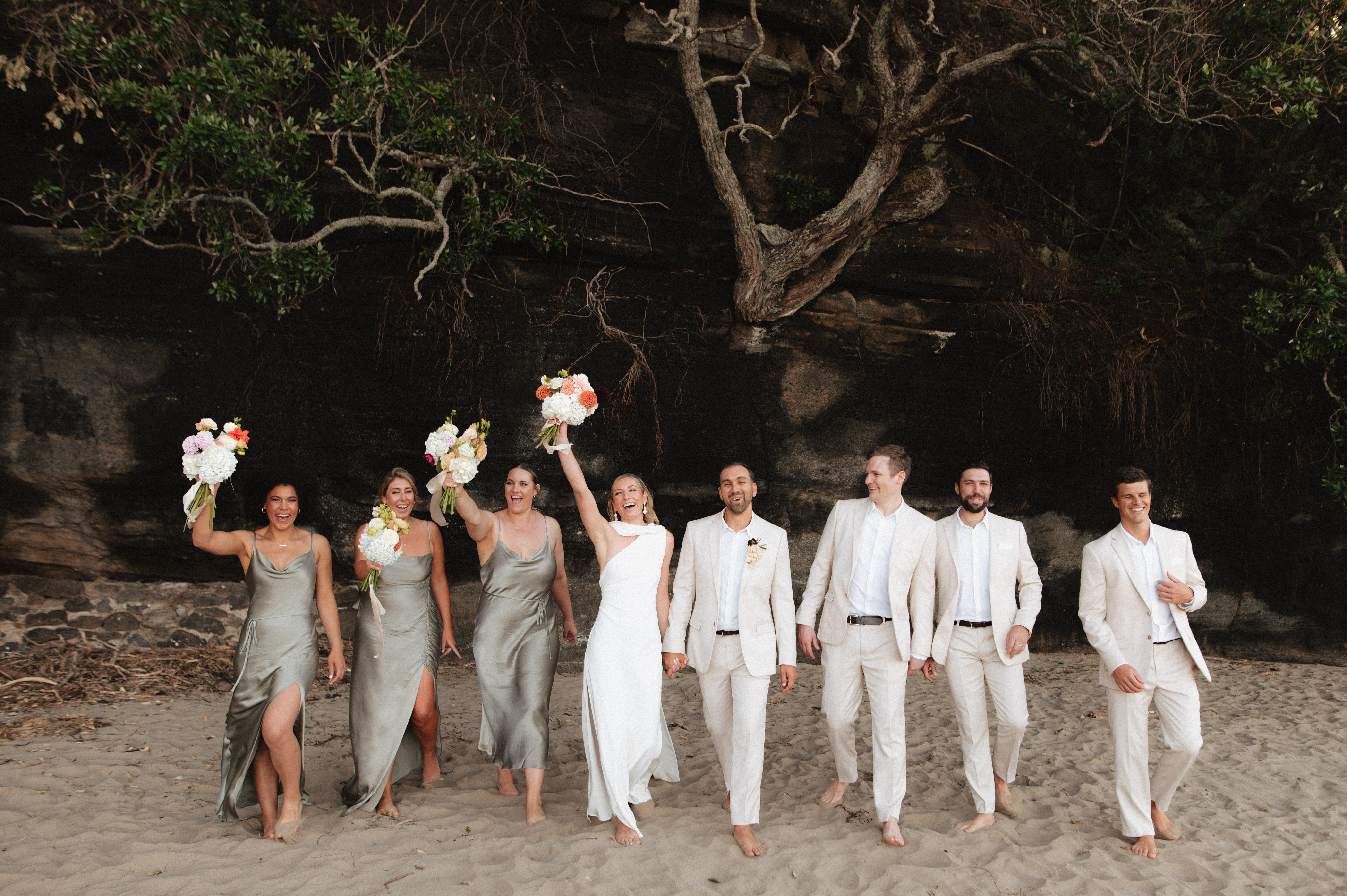
KW: I'm a big fan of YNAB.com. You Need A Budget. The first rule of it is every dollar gets a job. Amazing that your career has gotten to the point that you can buy a home, have that focus, and build upon that. What's been the worst decision, though? What's the flip?
JS: The worst decision was not charging hourly for coverage. I was gifting people the freedom to use more of my time. A big change I've made was changing to an hourly structure and starting with eight hours as a starting place. For most weddings in New Zealand, nine hours is a good fit, but for a third to half of my weddings, eight hours could do the trick. Everyone who fits the eight-hour package is great; they get exactly what they want for a good price. Whereas anyone who wants more, they pay for it. The other day, a couple ended up adding two hours to their wedding coverage, and that paid me more than what I would make selling an album. All those extra hours I gave away just because they fit with how my packages were being done in the past… I wouldn't even want to know the amount of extra hours that I didn't charge out.
One of the best things I've done for my business is focusing on local weddings and not shooting out-of-town weddings so much anymore. I think the older I get, all I want is an easy wedding day. All I care about is good, nice people to work with. And I don't need to go to the mountain tops or fly to the South Island for that.
KW: As you pivoted towards more local stuff, was that an uphill battle? I'm a travel photographer, and now I'm trying to be an Auckland photographer?
JS: When I started my journey, I worked with Jake Thomas, who is based in the Bay of Plenty region in New Zealand, about a two-hour drive from my house. A lot of my initial referral work was in that space. I'm based in Auckland. Naturally, I shot more Auckland weddings over the years. I found a snowball effect; every time you shoot an Auckland wedding, another hundred guests are based in that region, and it grows and feeds itself. I found that focusing on staying local paid off because you're meeting local vendors, working at local venues, and having networking conditions that are building and building. So, I didn't find it too hard to make that change because New Zealand has a different structure in terms of its cities and populations. A third of New Zealand's population lives in Auckland, it's our biggest city. That means it's expensive to live in but also means there's a lot of work available locally, so it wasn't too hard.
KW: What's your part of your process to make sure that the couples that you get are the people you want to work with?
JS: The viral videos I create are super polarizing because if you see me doing a dive roll and acting like a silly person at a wedding and you're highly strung, you're just going to be like, no, not for us. The other thing is that I won't let a couple book me until we've had the chance to meet. That's more for them to decide if I'm the right person for them. I'm not going to change who I am in that meeting. I don't think I've ever said no to a couple because if they believe that they want me, who am I to deny them who they want as their wedding photographer?
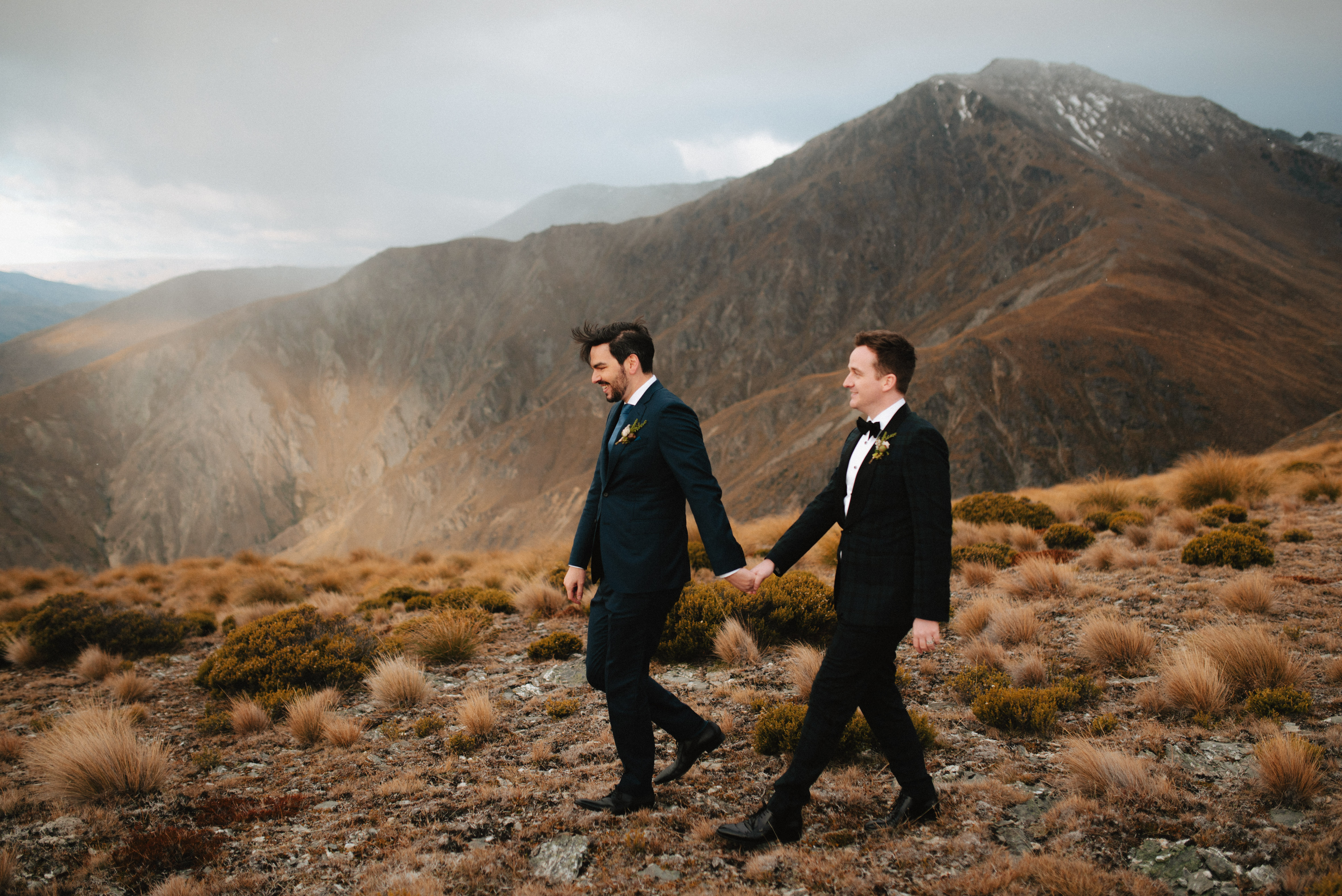
KW: Do you crank up aspects of your personality on a wedding day? Are you an extra goofy photographer when you're working with couples?
JS: The viral videos are probably 50 seconds out of a nine-hour day. I'm not like dive-rolling through the ceremony, pirouetting my way across the sunset shoot non-stop. I enjoy bringing the banter, having laughs, and definitely bringing some antics to weddings. I enjoy performing. I love making people laugh. I definitely couldn't maintain the level of social energy I pour into a wedding day Monday to Friday, but for weddings, I amp it up a little bit more. What I enjoy is making people laugh.
KW: Do you get any pushback from that?
JS: No. Jake Thomas, my original mentor, said to sell the sizzle, not the sausage. So, in New Zealand, we have sausage sizzles. I don't know the equivalent in America, maybe a tailgate. It's all about the experience. And he said if you're excited and passionate about what you do, that will always be what people gravitate towards. And luckily, I have always found a natural passion for wedding photography. It's all I ever wanted to do since I left high school. My biggest skill as a wedding photographer is my ability to people-watch and match energy. I don't create energy that isn't there. I add to and support the energy. I'm really good at reading the room and knowing when it's the right time. The core of who I am and where I find value in life is bringing joy to other people. I met a couple last night, and they said, "We don't want someone who's just there to take photos. We want someone who's going to entertain people and that people will talk about after the wedding." And I was like, "Perfect, I'm a great fit for you."
KW: When you're not shooting weddings, are you doing any personal projects?
JS: I've always had a background passion for comedy and love improv. That's something I've been channeling when shooting weddings. I did an improv workshop and did my second-ever stand-up set this year. When you're shooting weddings, it is a great reminder that it's another Saturday; it's time to perform. And you often sit at the start of the day thinking, what am I going to shoot today? What will I create? And sometimes you'll wonder, will I pull it out of the bag? And then, at the end of every wedding, it all worked out. It's a really cool weekly reminder that we get given the gift of self-confidence. Every week, you jump out of the plane with no parachute, and every week, it works out, and that's a really great affirmation to have, that yes, you can take a leap at something, and it'll work out.
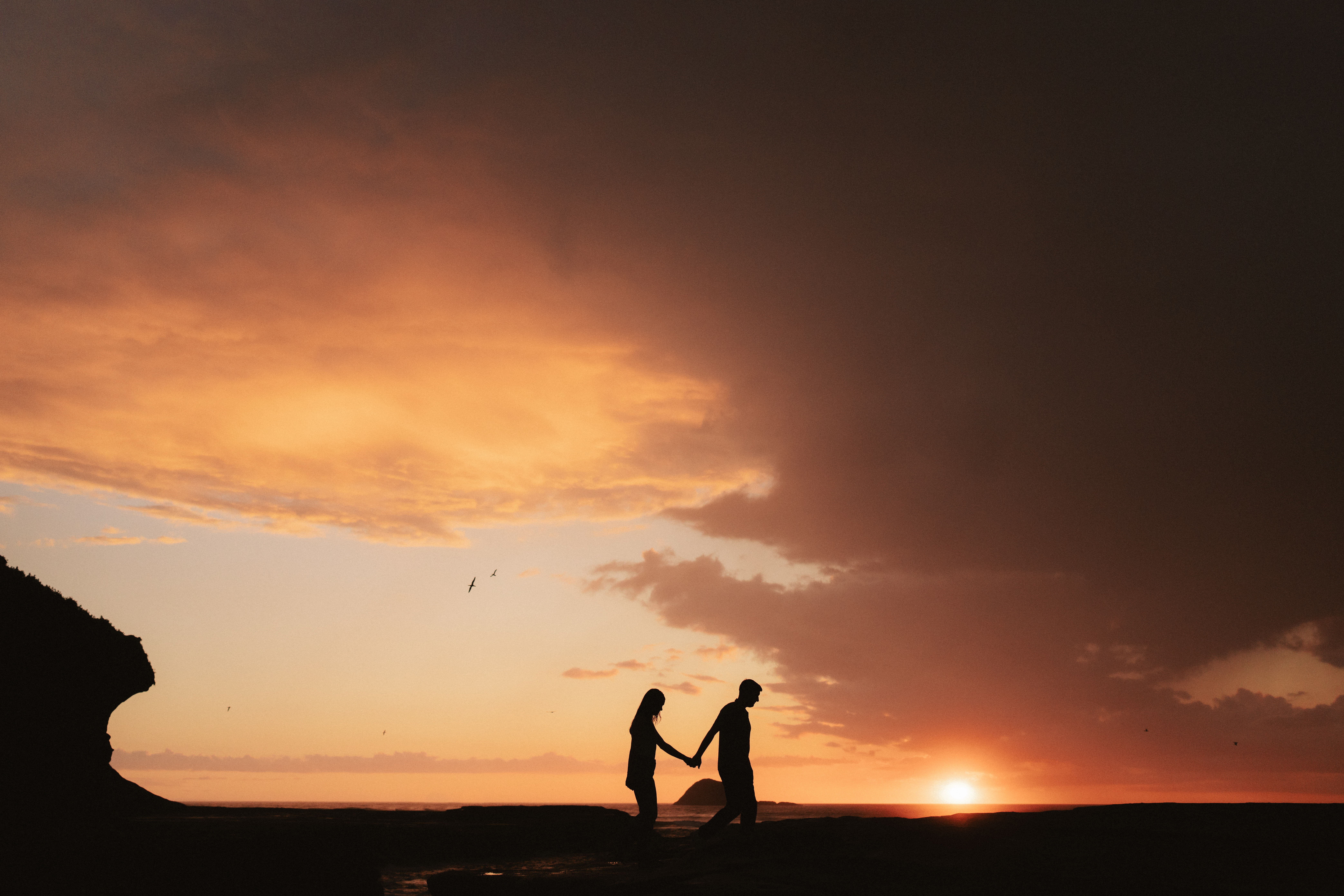
KW: What do you do when you leave a wedding and it isn't what you hoped it would be? How do you process that so you don't feel bad about it?
JS: With stand-up and weddings, you can be really self-critical. Stand-up is worse because if the audience doesn't laugh, you have a clear feedback loop. With weddings, you don't know as much unless you're getting feedback from your clients and hearing whether or not they like the photo. It's always been part of my personality to be critical of myself and always strive to improve next time. I'm always looking to be better, and have the mental toughness to be self-critical at the end of every wedding.
KW: My last question with you is, what's your problem? What are you working on right now?
JS: Figuring out that balance in our household and our business in terms of working together. Trying to get more productive and more controlled with my hours and how I work. I've now been able to outsource my viral videos to Bailey, which has been amazing. That was something that I was getting stuck on because I had all this content piling up, and I wasn't doing anything with it. I'm focusing on learning to let go and having someone else help me with the things I didn't have the time or capacity to deal with in the past.
I've become focused on what I want to get out of life and my business. My problem is trying to find a new assistant to train up - that's probably one of the best things I've done for my business in the last few years has been training up assistants - I have an assistant with me at every wedding, and that has been such a game changer, I feel like without that my lifespan in weddings would be so much shorter.
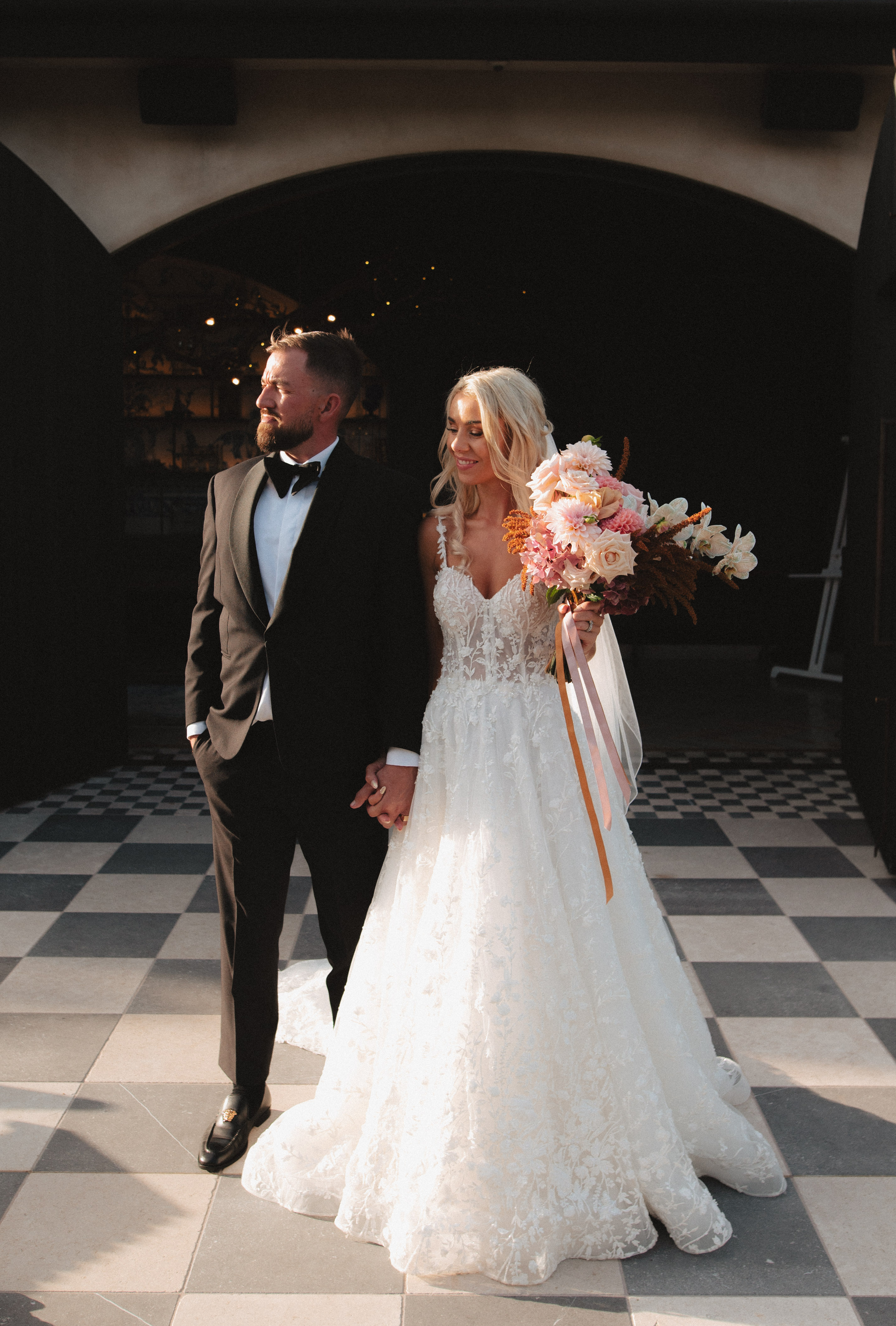
KW: What are you leaning on your assistant for that isn't replaceable by doing it yourself?
JS: Their initial role was to be there as a content creator for me. It helps give people a peek behind the curtains of what it would be like to have me on your wedding day. Photographing a wedding day takes up 100% of your capacity, and I was trying to do all these little extra things, but my body could barely keep up. Like running back to the gear bag to get the drone, unpacking it, shooting the group photo, and putting it back while calling the next photo. I realized I needed someone else to do all the other things. How I shoot, I'm rolling around doing crazy stuff, so they're running around behind me. It's made the day so much easier. It helps me give so much more creatively when all those other background tasks are out of my headspace, and I can just focus on taking good photos. For me, it's an investment I'm so willing to make. It's like getting through summer with air conditioning instead of just a fan. I'm very happy to invest this money because I know it will make everything so much easier.
KW: Thanks so much for your time today.
JS: It's been so much fun chatting and cool to be nerding out all sorts of budget-related things. That's such a win.
You must see Jonathan’s TikTok for a taste of what he brings. Check out his website and follow him on Instagram (@jonathansuckling) to keep up with his antics.
This interview has been edited and condensed. Check out “The Photographer’s Problem: A Narrative Podcast” streaming now on YouTube or Spotify for the full, unedited interview and more inspiring stories with an immersive look into the intricate world of photography.